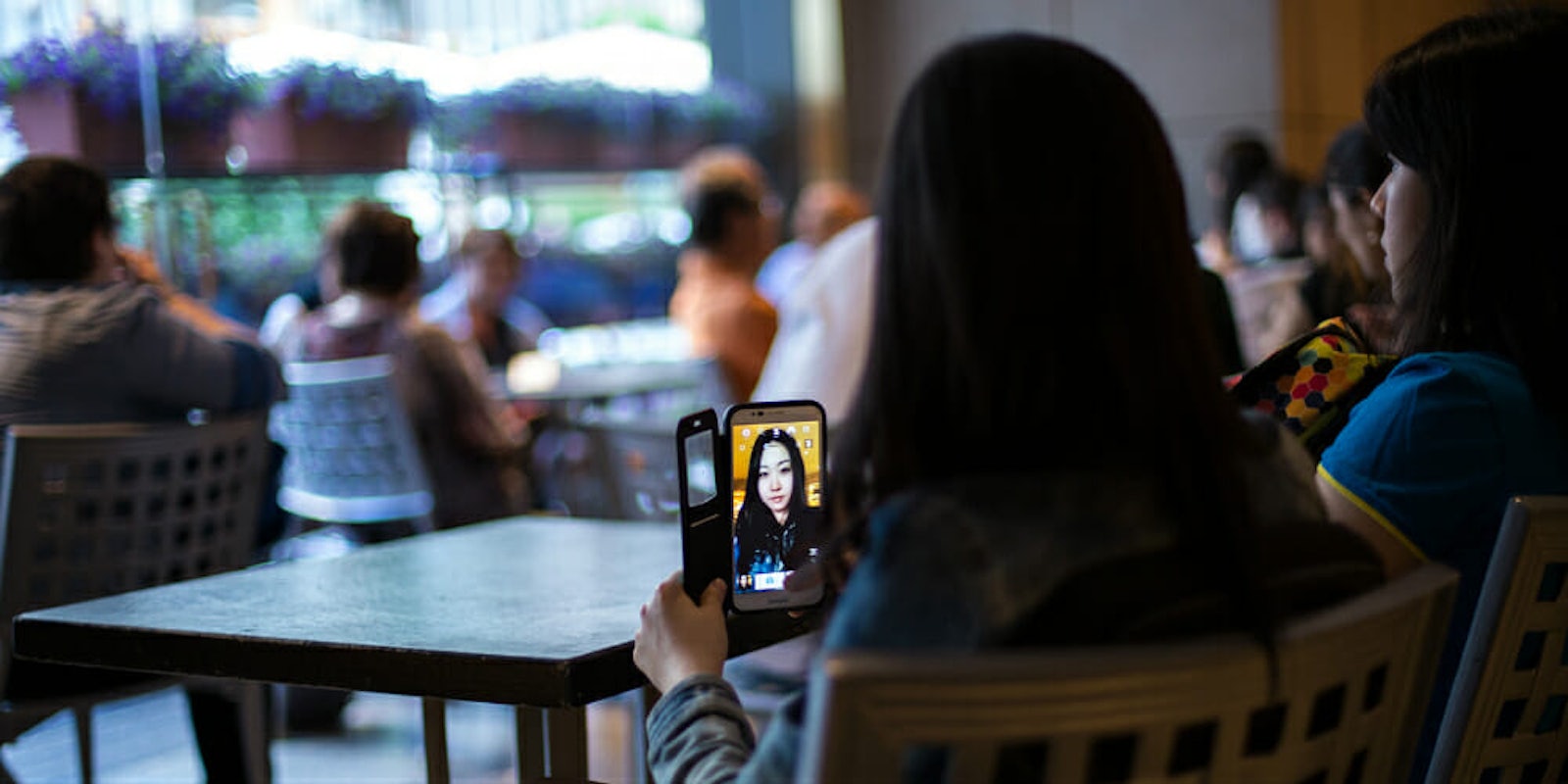Selfie filters might be messing with the way we see our faces. In a new Guardian report, plastic surgeons say people are bringing in filtered selfies as inspiration for how they want their faces to look.
According to Dr. Tijion Esho, the founder of Esho clinics and the person who coined the term “Snapchat dysmorphia,” patients are transitioning from bringing in pictures of celebrities to show what they want, to altered pictures of themselves. The pictures tend to be selfies edited with the airbrushing app FaceTune, or pictures where a Snapchat filter has been applied. According to Esho, some customers will bring these pictures in as a guide of what they want to look closer to, but others have higher expectations. Esho told the Guardian some clients who come in with Snapchat-filtered selfies will say, “‘I want to actually look like this,’ with the large eyes and the pixel-perfect skin” but “that’s an unrealistic, unattainable thing.”
The medical journal JAMA Facial Plastic Surgery seems to corroborate Esho’s experiences in a recent report. Researchers found that filtered images blur “the line of fantasy and reality” and could trigger body dysmorphic disorder.
Another physician interviewed by the Guardian, Dr. Wassim Taktouk, said that people are requesting changes that simply don’t look human. “The first thing that any of these filters do is give you a beautiful complexion,” said Taktouk. “Your naso-labial [laugh] lines, from the nose to mouth, aren’t existent—but that’s not a human face. No one doesn’t have those. You can see them in children.”
According to Taktouk, many of the people approaching him for these procedures are in their teens and early twenties; Taktouk also refuses to treat anyone who is younger than their early twenties and has also declined clients in that age bracket. A young woman the Guardian interviewed named Anika said that when she showed Taktouk a filtered picture in which her nose was much smaller, he told her that wasn’t going to happen with filler, and to come back with her mother.
People have been trying to reach unrealistic expectations of beauty through plastic surgery for decades, but it seems with the assistance of selfie filters, those expectations may have risen to impossible heights.
H/T Jezebel


